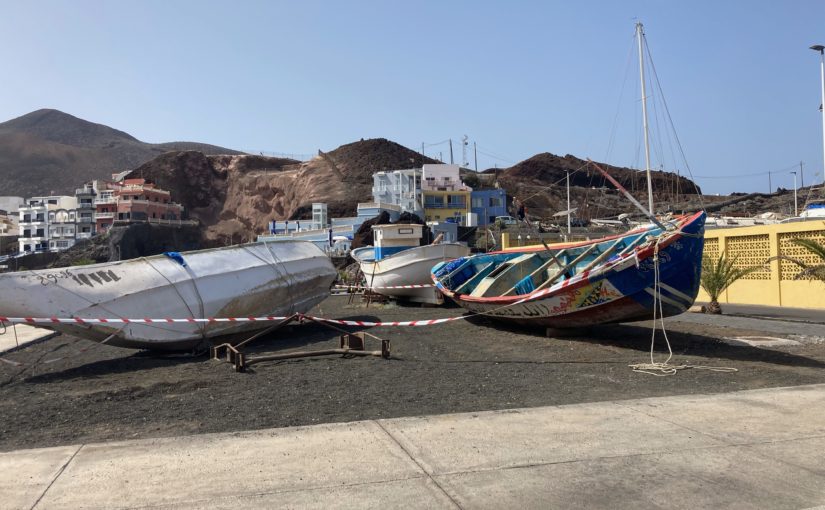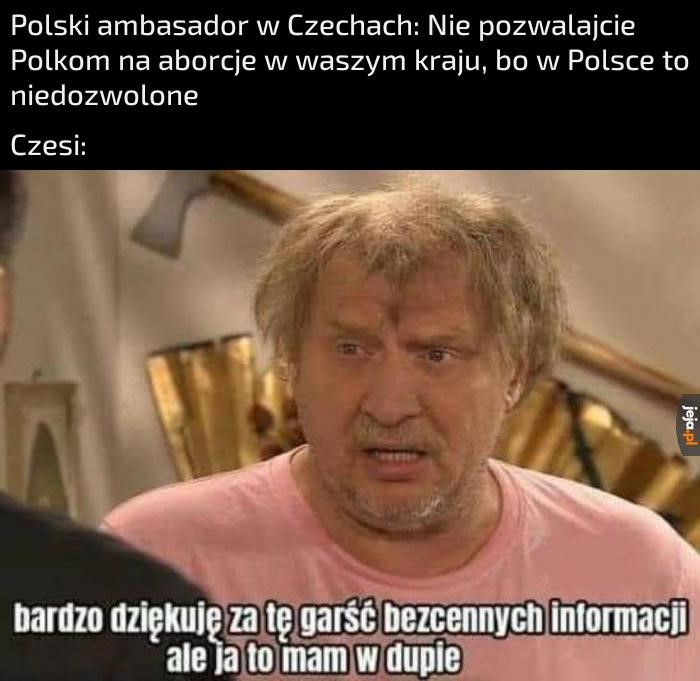Translation of an interview conducted by Jérémy Geeraert in German.
Jochen grew up in a middle-class family in the Ruhr area. He dropped out of his business studies shortly after starting, and decided to train as a ship’s captain. Initially it was easy to find work after his training, but the situation has deteriorated since the financial crisis of 2007. After losing his job as an officer in a large shipping company, he entered a period of unemployment that lasted more than three years, with only casual jobs on tourist boats. In 2019, he heard, rather by chance, that NGO boats doing sea rescue in the Mediterranean were looking for captains. Although his search for employment was unsuccessful, he was able to volunteer as a captain’s leader (Kapitänsmattführer) on a rescue mission. Jochen was involved in the rescue of 104 people trying to reach Europe by rubber dinghy.
In the excerpts from the interview conducted with Jochen for the CrimScapes project, the effects of criminalization in the field of humanitarian sea rescue become clear.
I. Entering the boat: “The most meaningful thing you can do with a captain’s patent”
[…] Interviewer: First of all, before you heard about [the NGO], what had you heard about sea rescue before?
Jochen: Yes, I heard about it in passing, that it was a big problem here, and when I got the job offer here, the Carola Rackete thing had just come up, that was actually exactly the time.
I: Did you follow that?
J: I followed it, of course.
I: How did you perceive it, what did you think?
J: Well, I have the greatest respect for what this woman has achieved and done, and to be honest, I wouldn’t want to change places with her at the moment. To be in the public eye like that. […]
I: And is that for you, is that a job, so to speak?
J: Yes, that is for one out of unemployment, but I also consider it somehow as winning the lottery, somehow then in the end that it is a job that you really like to do, and which is somehow the most meaningful thing that you can do with a captain’s patent. So, it’s better than just driving tin cans back and forth.
I: And can you still remember what you thought when this request came? What questions did you ask yourself or what were your expectations and ideas?
J: Yes, as I said, I was immediately enthusiastic about it. So, I hardly thought about it, and then I read a little bit about the legal situation. I hadn’t necessarily intended to lose my patent because of that, but … since that was the case until now….
I: You can’t lose it?
J: So far, no one has been sentenced for private sea rescue. All court cases have ended with the acquittal of the defendant. […]
So what we do, that is by international law even mandatory, more or less. If you are on the way with a ship and you get to know about an emergency at sea, you have to help. And that beats any national law and any Salvini decrees, so I don’t worry about it. […]
II: At sea: “Chaos on the chart” or rescuing between warning shots, border lines, decrees and storm warnings
I: You had a clear assignment, right?
J: Exactly. Yes, that was the task that I more or less took on. So officially it was never really regulated, but I practically went up on the bridge after breakfast and then went down from the bridge before going to bed. Simply because the others had more experience in looking after guests, I kept their backs free, and that’s how I saw my role here.
I: So [Helene (name of the ship)] went on her first mission. When did it leave?
J: We were on the road for two weeks. got on in Barcelona, where we made the steamer a bit more ready, did a few repairs that weren’t quite finished yet. So the drinking water system and so on, there was a bit of a botch-up that had to be fixed. Then we set off, made another stopover in (…Cagliari…), refueled, fixed a few things that still hadn’t worked, drove from there to just outside Libya, before Tripoli – Tripoli, no? – and positioned ourselves outside the 24-mile zone, and on the way there we saw the first dinghy that had been flooded and was really only suspended from a single chamber.
I: Without people.
J: Without people on it, without somehow a mark that someone had retrieved it. The people had… drowned, to be blunt.
I: How big was it?
J: Such a rubber dinghy, as we have taken up in the end, 80, 100 people may have been that. Floating there like that, according to the bird shit that was on it, for two, three days probably already…. We then went to our observation position afterwards, because we were doing an observation mission and not an official rescue mission. You’re not allowed to do that as a private motor yacht. Uh, we received a distress call, i.e. a position report from a rubber dinghy, went there at night, searched for three hours, but found nothing, returned to our position, barely arrived there, and received the next position report.
I: From the same ship, from the same boat.
J: No, from another boat, that was probably a rubber dinghy with 86 people, including women, children on it, that’s what we were actually looking for and then we found our boat. So what happened to the other boat … we can only speculate.
I: We don’t know.
J: You never know.
I: What kind of boat was it?
J: Yes, it was a rubber boat, about ten meters long, I’d say, (…). Broken outboard motor, no more drinking water on board, the first air chamber was already broken, the second air chamber broke when we started to rescue the people, so two or three hours later they would have been drowned. […]
I: Could you describe the crew on board, how many people were there, what kind of people, with what kind of tasks?
J: Well, in the end we left with, let me not be wrong, seven. The captain, the first officer, me as second, Georg as third, we had a doctor with us, a cook and two reporters.
I: Reporters – from?
J: Freelance.
I: Freelance… why did they have an assignment for…?
J: Yes, they had an assignment, they accompanied us, but they also collaborated. […]
I: And the media, what is their function on board? Why are they with us now as media people?
J: Well, once to report on the situation, what is happening here in the Mediterranean. To draw attention to it, and I have to say quite honestly, I was also glad that they were there, because that simply brought a bit of security.
I: Yes, in what form?
J: Well, when we retrieved the dinghy and took the people from the boat, a speedboat from the Libyan coast guard came. And there were also situations where they fired warning shots at such NGO boats. […]
I: But that didn’t happen in your case?
J: That didn’t happen with us.
I: How did it happen, how did they come? And then?
J: Yes, they just arrived (exhales), came at us at full speed, then drove relatively close to us, actually quite too close, if you consider the condition of the rubber dinghy, which could have filled up at the moment. And then, of course, it’s nice if someone somewhere is filming the whole event with a camera, and you can also see that there are somehow webcams on top of the roof, and that you can imagine that this is also being streamed live.
I: So securing evidence.
J: Securing evidence, in case they would have still somehow freaked out, there.
I: This also means that you yourself, that what you do yourself is also recorded, is also a security, right?
J: That too, yes. And a nice memory, apart from that.
I: How long did this rescue operation take until they were all on board?
J: About half an hour, an hour. First we sent the rubber dinghy ahead, packed life jackets on it. We actually assumed that the boat with the nearly 80 people, they first distributed the life jackets, but then went back again, because that was just too few. In the meantime, we approached the position and wanted to bring the people on board individually via our rubber dinghy, simply so that things would run a little more smoothly. If everyone wants to climb over the edge, wants to climb on board, such a boat is of course bad (…tuned…) and can also tip over sometimes.
J: But when the coast guard came, we more or less ignored it, pulled the boat alongside with boat hooks and let them climb over the railing so that it would go faster. […]
J: So ‘picked an eye, in between then the rubber is also torn there, where I had held that. So to call that a rubber boat at all, that’s a bit of a euphemism, that was better tent material, I’d say.
I: What kind of people were on the boat? Can you tell?
J: Yes, a total of 109. There were two Egyptians, there were Sudanese, and there were – let me not say anything wrong – Libyans, I think, but I have to check again. The youngest was thirteen, had been traveling alone for a year, and that went on until … almost early 30s, I would say, almost all young men. […]
I: And how can I imagine it here, on the ship, with so many people? Where was everybody?
J: (laughs slightly) All on deck.
I: How big is the ship, how long is it?
J: 25 meters long and about five meters wide. Half of it is superstructure (Aufbauten). So in purely mathematical terms, we have just under half a square meter per person. And you can imagine that it’s going to be very cramped.
I: Yes. So they were all on deck, right?
J: They were exclusively on deck. So in the superstructures, of course we had to work accordingly, prepare food, we couldn’t have any of the people sitting around. Only at the end, in the storm night, where the water stood half a meter on deck, we took them in with us, of course, otherwise they would have been washed over the edge.
I: You’ll have to explain that to me a bit more. What happened there? So you took them all on board, to stay in order, and… where did you go?
J: First we drove to Malta, tried to get in. We didn’t get an entry permit.
I: Yes, how long did that take?
J: That was a total of nine nights.
I: So they were on board for eight nights in total?
J: Exactly, and it took us about a day to get to Malta. So we were just drifting around for a week. […] We made sure that we didn’t run into the twelve-mile zone. Then we drove on towards Italy that day, because there was a storm warning for the next two or three (…days…), and Italy was a bit more sheltered. And the storm hit us at night as well.
I: Yes, after how many days?
J: Yes, the ninth night, as I said, we had no choice but to continue to Italy, because the wind was coming from the south. And we sailed in such a way that we offered as little attack surface as possible, so always with the wind…
I: Because there were people on board.
J: Because the people were on board. So that the ship becomes a little calmer, there partly then still a little on the open sea or less, if somehow ‘ne wind gust has come, the course changed. That looked quite chaotic afterwards, on the electronic sea chart. .. Yes, it was seven, eight wind forces, as I said, water level about half a meter on deck, where the people were sitting, all of them, and that was really the time when it all became a maritime emergency for us, too. Because this was an untenable condition, we had to enter.
I: So there was no permission from the Italian coast guard?
J: There was no permission, so we announced ourselves, said we were coming in, and if we didn’t get permission, we would declare ourselves as a maritime emergency, so the Italian coast guard would have to save us, they would have been obliged to. They are there, yes (laughs) we also had, this time yes we also had a Salvini decree even against us. So on the day when the government was dissolved, Salvini wrote a decree again, so to speak, in order to bring us in under the threat of a penalty of one million banned. Uh, yes (grins), I now amuse me deliciously about it. We are here, Salvini is gone. Yes, as I said, we announced ourselves, kept in touch by radio, they sent a boat to meet us, from the Guardia Financia, they saw the conditions on board and then realized that they had to let us into the port. So in the end we did have permission to enter the port.
I: And, uh, why was the ship confiscated?
J: Puhhh…
I: What is the accusation if, if they let you enter?
J: Well, you’ll have to ask the lawyers about that, because we violated this Salvini decree.
I: Well, okay.
J: But, as I said, we acted strictly in accordance with international law, and international law takes precedence over national law.
III. On deck: Emergency supplies and leisure time activities
I: So, let’s take a quick look back before we go in. Um, how is it, how can you imagine it here, on board, the week where you were so full? How did it go, what happened? How did the days go? Where did they sleep, how did they eat…was there medical care? Can you briefly describe all of that a little bit?
J: Well, the people just sat on deck all day. Of course, they had almost nothing to do. We tried to set a highlight every day. A shower built up for that everyone could shower for two minutes, with bell in front, bell at the end, fresh clothes handed out. One day we drove the people with our rubber dinghy a little bit through the area… as an action program, I would say, more or less, to kill time. One day we gave out some playing cards, but that caused a bit of a quarrel on deck, … which resulted in the guests collecting the cards themselves, because they wanted to be as quiet as possible and didn’t want to have any trouble with us. Food (exhales), couscous, in the morning and in the evening, is just the only thing that you can prepare on such a normal stove, a normal kitchen stove, for a hundred people. In other words: three kilos each, I think it was, in a ten-liter cleaning bucket, hot water on it, and the whole thing then with beans, with tuna, with chocolate, however a little flavor brought in; a plastic cup full, morning and evening. A little bit of muesli bars, energy bars, sometimes there was half an apple for it. So we made an emergency supply so that they had the necessary calories. Uh, we had medical care, as I said, a doctor on board, who had office hours once a day.
I: Was he busy?
J: Yes, he was busy. He also sat here, distributed the appropriate waiting tags … and then took care of the people afterwards.
I: There’s a little infirmary, that’s what he did there, right? In this little room?
J: Exactly, we have such a small hospital here, where … equipped with the most important medicines. Correspondingly for wound care and the expected things, so scabies medication, for example, against cough, against cold, (…) painkillers.
I: Were there any problems with seasickness?
J: Yes.
I: Were there, among the guests?
J: Well, one of them was really seasick all the time, but he didn’t really talk about it, he just kept it to himself.
I: And … where did they sleep?
J: Well, in the end we slept on deck. (Exhales) And at night we turned off the radar and satellite antenna so that we could sleep up here on the superstructure and on the forepeak, otherwise it wouldn’t have been possible in terms of radiation. Then we had a mast with a viewing platform on the forepeak, and the people slept on it, strapped in so that they wouldn’t fall off. We padded our gangway with life jackets so that you could lie on it, i.e. every available square meter. One of us always slept in our little dinghy.
I: So, one after the other? Can you put it that way?
J: Yes, everyone must have had a fixed place somehow, the whole time, it must have been so well established, they also had a bit of a hierarchy among themselves.
I: But in the open air?
J: Under the open sky, the whole time. So we stretched out a canvas as a sunshade … there was no other way. Especially at night, you could really only walk across the deck as a balerina, so to speak. Because one step, and then somehow on tiptoe, and then one step to the side, where the next place is, where you can put your foot…
I: To get a way through…
J: To be able to move through it at all and to be able to go to the toilet at night, … to the front.
I: How was the sanitary situation solved?
J: (exhales) Yes, a disaster in and of itself. Well, we had an outside toilet, a metal tub with a hole and a drain pipe, a garden tube for rinsing, and we put a canvas cover there as a screen. Two people even slept there, although that must have stunk like a pig, and there all the time … with a hundred people, there is often a leak. Those were even the preferred places, as one had noticed, because there was just a bit more space.
I: Was there something like a fixed daily routine? Was there any organization?
J: Actually, only the fixed meals, and even those were a bit dependent on how we got organized.
I: And for you as a team, was there such a shift schedule, or was there so…? ?
J: Exactly, we had a shift plan, a fixed guard plan, so at night four hours each, during the day three, that the individual shifts also changed among themselves, that not everyone always has to work from midnight to four, or so, so once the guard and then the next from 8 pm to midnight. […]
J: Yes, it was especially exhausting. Temperatures always 30 degrees, no wind, deck full, a bit grumpy, to say the least. When you have a hundred people sitting there who haven’t showered in weeks or months, it’s quite noticeable. […] And apart from that, I was on watch from morning till night. Hardly slept…, so if I was lucky it was sometimes six hours, sometimes less, whereby especially Caro and Georg actually didn’t get much more than two hours per night. They mainly took care of the guests. I almost had the nicest job here on board, I have to say.
I: Yes. And then the situation here on board, how did you perceive it, what went through your mind, what did you feel? What can you, can you remember about it?
J: Puhhh … so I was glad that we had the people on board. That was such a really ‘good thing’ what we did there, if we hadn’t taken them on board, they would have been drowned. That was also clear to me the whole time. Accordingly, I was also more than willing to accept the corresponding inconveniences, I’ll call it now. It was probably one of the hardest, but certainly also the best thing I have ever done.
I: Ever in your life, you mean?
J: Yes. Like I said, somewhere more than a job. (grins)
IV. In the port: routine work and daydreams of de-criminalisation.
I: Yes. .. How would you say the mission would have gone if the work hadn’t been criminalized?
J: We would have offloaded the people here, refitted the ship and set off again.
I: How long would that have taken?
J: Phew, three, four days maybe.
I: So maybe two or three rescues instead of one, can you say that?
J: Yes, I’d say, basically, a shuttle service would have been optimal. Collecting people, into the harbor, unloading people, taking on provisions and getting everything ready again, and setting off again. […]
I: Hmm. So, let’s get to the time here, in [port city in Sicily]. What’s your job here on the ship in the port?
J: To take care of the ship. One is to make sure there’s no “shopping” here. There are still certain valuables, the satellite system cost 40,000, I think.
I: So that nothing is stolen.
J: That nothing gets stolen, keeping the ship running, small repairs. And we are obligated on the part of the port to ensure that the ship is manned appropriately, that it can be moved if necessary, and that there is always someone on board with the appropriate competence, I would say, to simply be addressed.
I: That is, to be present. What do you have to do on the boat, specifically?
J: Yes, what do I have to do concretely. Well, running the boat, making sure that there is always electricity, keeping the generator open, turning it on and off… the thing that has to be done regularly, pumping out the (…),the passage of the shaft through the hull, there is always a bit of water coming in, that has to be pumped out regularly. And such small routine work. Checking the lines to make sure that nothing breaks and, if in doubt, tightening them again. […]
I: Hmh. Do you also have time on the ship, or are you busy all the time?
J: Actually I have more than enough time.
I: More than enough.
J: Yes, way too much. […]
I: And, um, killing time is what you call it. And how do you feel about that?
J: Quite boring, by now. […]
I: Um, would you say this is meaningful work that you’re doing here?
J: Phew, well, I’m glad that I have a job on a ship again, in that respect yes, but it would make sense if we could sail again now and get back to work.




